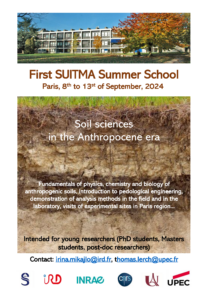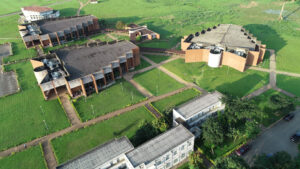
Thesis defense – Corentin DOURMAP
“Study of the interactions between proline catabolism and nitrogen metabolism in seed development of Arabidopsis thaliana”
Abstract:
Proline is a proteinogenic amino acid involved in the development and adaptation of plants to environmental challenges. Pyrroline-5-Carboxylate Dehydrogenase (P5CDH) is the mitochondrial enzyme responsible for the second step in proline catabolism. The objective of this thesis was to evaluate nitrogen remobilization from vegetative parts to the developing seeds in p5cdh mutant and the impact of the mutation on seed development in the p5cdh mutant. It was thus shown that seeds of p5cdh mutant presented a decrease of nitrogen and carbon remobilization. This phenomenon is exacerbated in case of a non-limiting nitrogen supply (10 mM nitrate). p5cdh seeds are morphologically abnormal and present a very low germination rate. p5cdh seeds also show altered embryonic development with an embryo blocked at the transition between embryogenesis and maturation phases. On the other hand, the maturation phase is strongly disrupted with a weak transient greening of the embryo, low accumulation of storage compounds and a very important accumulation of amino acids, notably proline. Multi-omics analysis of siliques and seeds of the p5cdh mutant revealed rapid chloroplast degradation, anaerobic metabolism, energy deficiency and a gradual metabolic arrest during seed maturation phase. At the end of their development, seeds of the p5cdh mutant show a lack of tolerance to the dehydration phase, which leads to death of the embryos. All of these results suggest that proline catabolism, and particularly the P5CDH enzyme, are essential elements for maintaining redox balance in cells and respiratory activity during seed maturation. Furthermore, our new data show that the p5cdh mutation also has a negative impact on pollen development, opening the route to new roles for P5CDH in reproductive development.
Key-word: Seed development, Proline, Nitrogen, Arabidopsis thaliana, energy, redox equilibrium
- Url de l'orateur: https://iees-paris.fr/annuaire/dourmap-corentin/




